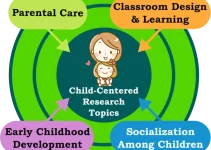Writing a literature review is a tedious task unless you apply a systematic approach to it. But first, you must get back to the very reason why you are writing the literature review to appreciate its role in completing your research paper or thesis.
Since the internet is a great source of information and is nowadays a common destination for researchers who want to access the latest information as quickly as possible, care must be exerted in selecting research papers that will help you build your thesis.
This article gets back to the definition of the literature review as a take-off point towards being choosy in using easily accessible websites as sources of information in developing a thesis.
Literature Review Defined
A literature review is a critical description of the literature pertaining to the research topic that you as a researcher chose to work on as part of your thesis proposal or research paper. Emphasis is given to the word “critical.” This implies that you have read a great deal of literature such that you are able to see clearly the issue at hand and make an informed assessment.
Reading a great deal does not mean that you will just read any literature that comes your way. This means that you have read literature that are backed up by evidence, meaning, scientific papers or articles that are found in peer-reviewed journals or reliable sources. Reliable sources ensure that you have a good foundation in making a thoughtful position embodied in your thesis statement.
Selecting Literature from Websites
You must be careful in selecting the literature from websites that will be part of your review because of the preponderance of “scientific” journals that take advantage of unsuspecting researchers looking for a platform to publish their findings in open access journals. To prevent being victimized, evaluate your sources for reliability.

Jeffrey Beal, a librarian at the University of Colorado, took time to list questionable open-access journals. If you have been invited to publish in these journals or serve as editor or member of the board, think twice. Browse the site and evaluate the quality of the articles posted. Poor grammar, wrong spelling, or garbled information are tell-tale signs of predatory journals.
It is easy to be misled as everybody can easily access a large body of literature using the internet. You must therefore adopt a prudent attitude in selecting literature from websites that will help you develop a good thesis statement. As open-access journals become popular sources of scientific literature, a good researcher must develop a keen eye in selecting the wheat from the chaff.
©2015 January 30 P. A. Regoniel



